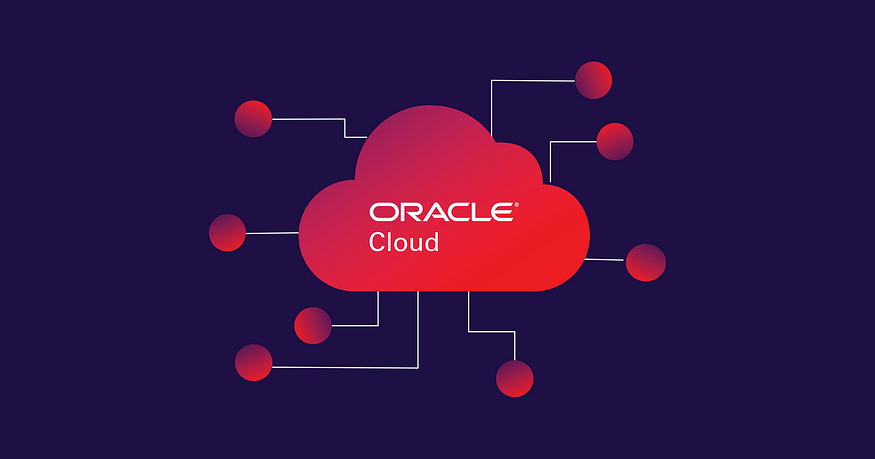
Hello, today we will take a general overview of the Oracle Cloud architecture.
Source of the Notes: https://mylearn.oracle.com/ou/course/getting-started-with-oracle-cloud-infrastructure/116049/180753
Oracle Complete Cloud Solution
Oracle Complete Cloud Solution is a comprehensive solution that offers companies a wide range of cloud services. This solution from Oracle allows businesses to optimize their IT infrastructure, simplify database management, and securely host their applications.
Key Features:
Broad Service Range::
Oracle offers a wide range of services, spanning from computing to database management and application development
It supports various cloud service models such as Software as a Service (SaaS), Platform as a Service (PaaS), and Infrastructure as a Service (IaaS).
Güvenlik ve Uyumluluk:
Güçlü güvenlik önlemleri ve kimlik doğrulama mekanizmaları ile müşteri verilerini korur.
Çeşitli sektörlere yönelik uyumluluk standartlarına uyar.
Integration and Efficiency:
Oracle Complete Cloud Solution facilitates the integration of different systems and applications.
Automated business processes and database management enhance the efficiency of businesses.
Elastic Infrastructure:
Provides scalable infrastructure based on demand.
Ensures high availability and performance.
OCI Architecture
Oracle Cloud Infrastructure (OCI) represents the architecture of Oracle’s Infrastructure as a Service (IaaS) cloud platform. OCI’s architecture is centered around security, performance, and scalability.
Main Components:
Oracle Cloud Global Footprint:
Oracle’s data center network is strategically positioned worldwide.
The global network architecture provides low latency and high-speed connections.
Virtual Cloud Network (VCN):
It provides a virtual private network, isolating network traffic with network segmentation and security firewalls.
Allows the creation of scalable and customizable network structures.
Compute:
Provides virtual machines at different performance levels.
Offers specialized hardware options for high-performance workloads.
Storage:
Offers various storage options: block, file, and object storage.
Provides customizable storage options based on performance and cost requirements.
Oracle Compute Services
Oracle Compute Services is a service within Oracle Cloud Infrastructure (OCI) that offers customers various compute options. This service provides scalable and high-performance computing resources for different workloads and applications.
Oracle Compute Services offers various compute options, including bare metal machines, virtual machines (VM), and machines with GPU (Graphics Processing Unit) support.
Bare metal machines provide full access to physical server resources and are suitable for high-performance workloads.
Virtual machines provide environments where hardware resources are virtualized and are used for a wide range of applications.
GPU-supported machines are optimized for graphics-intensive workloads and parallel computing.
Oracle Storage Services
Oracle Storage Services is a service set encompassing storage services within Oracle Cloud Infrastructure (OCI).
Storage Types:
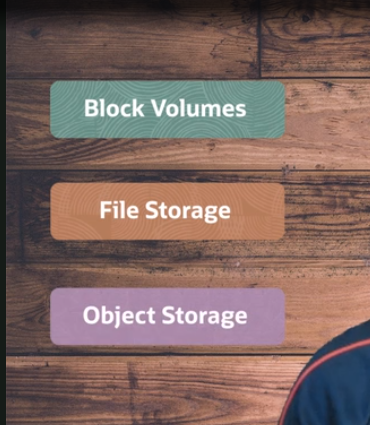
Oracle Storage Services includes various storage types. Among these types are Block Storage, Object Storage, and File Storage.
Block Storage: Ideal for I/O-intensive applications. This storage type is used for workloads that require block-level access, such as virtual machines and bare metal machines.
Object Storage: Used to store large amounts of data in a scalable manner. Object storage is suitable for scenarios involving big data, backups, and archiving.
File Storage: Used for applications that require shared file systems. It is ideal for sharing files among multiple virtual machines or users.
Oracle Networking Services

Oracle Networking Services is a service set encompassing network services within Oracle Cloud Infrastructure (OCI). These services enable users to create flexible network structures, providing a secure, high-performance, and scalable network environment.
Virtual Cloud Network (VCN):
VCN (Virtual Cloud Network) is one of the fundamental building blocks of the Oracle Cloud network. Users can create and customize their own private virtual networks.
They can determine IP address ranges and segment network resources by creating subnets.
Subnets:
Subnets are used to further segment resources within a VCN.
Each subnet can be configured to apply different network security rules and management policies.
Security Lists Network Security Groups:
Security lists are used to control and filter incoming and outgoing traffic.
Network security groups are used to apply security policies by grouping resources with similar security requirements.
Load Balancer:
Load balancers balance incoming network traffic, distributing the load across multiple targets.
This enables applications to achieve higher performance and availability.
Oracle FastConnect and VPN Connections:
Oracle FastConnect enables customers to establish low-latency, high-bandwidth private connections between their private data centers and Oracle Cloud.
DNS Services:
Oracle Cloud provides DNS services, allowing users to map domain names to IP addresses and route network traffic accordingly.
Dedicated Interconnects and FastConnect Classic:
Dedicated Interconnects and FastConnect Classic enable the establishment of high-speed, low-latency private connections between Oracle Cloud and customer private data centers.
Edge Services:
Oracle Cloud includes edge services such as Content Delivery Network (CDN) and Web Application Firewall (WAF), allowing users to distribute and optimize content worldwide.
Oracle Cloud DNS provides a reliable and high-performance DNS solution.
Oracle Database Services
Oracle Database Services represent cloud-based database services within Oracle Cloud Infrastructure (OCI). Oracle is one of the world’s leading database providers, and Oracle Database Services aims to provide customers with scalable, secure, and high-performance database solutions.
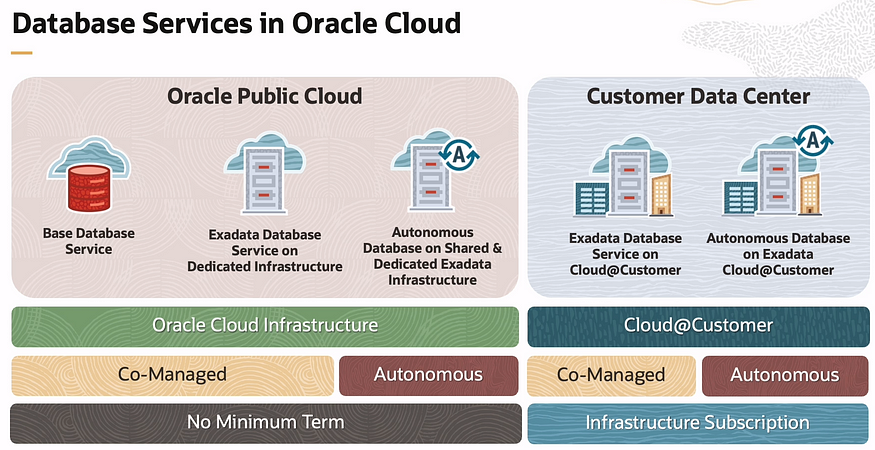
Autonomous Database:
Autonomous Database is a managed database service provided by Oracle. This service includes features such as automatic backups, security patches, performance tuning, and auto-scaling.
Customers can focus more on application development without worrying about managing and automating the maintenance processes of their databases.
Oracle Database Cloud Service:
Oracle offers various service models that allow customers to build and manage their private cloud databases.
This service enables users to run their Oracle Databases on the Oracle Cloud.
Exadata Cloud Service:
Exadata Cloud Service is a high-performance and scalable cloud database platform.
Built on the Oracle Exadata infrastructure, it provides an optimized solution for high-performance query processing and large data workloads.
Database Backup and Recovery:
Oracle Cloud offers services that enable customers to manage backup and recovery processes for their Oracle Databases.
Automatic backup provides protection against data loss and simplifies the recovery processes.
Database Security:
Oracle Database Services provide robust database security.
This includes data encryption, access control, authentication, and other security measures.
Database Monitoring and Management:
Oracle provides tools that allow users to monitor, manage, and track real-time performance metrics of their databases.
Automatic performance tuning assists users in optimizing their databases.
Multitenant Architecture:
Oracle Database offers a Multitenant Architecture, enabling the operation of many independent databases on a single database server. This allows for more efficient utilization of resources.
Database Development Tools:
Oracle Database Services provides users with various tools and APIs for application development and database management.
It supports various programming languages such as SQL, PL/SQL, and Java.
Oracle Developer Services
Oracle Developer Services is one of the services within Oracle Cloud Infrastructure (OCI), providing developers with various tools and resources for application creation, deployment, and management.

Application Development:
Oracle Developer Services offers various tools and resources that support the application development process.
It supports popular programming languages like Java, Python, Node.js, and Go for application development on the Oracle Cloud.
Developer Tools:
Oracle provides various developer tools to enable developers to work quickly and efficiently.
Integrated development environments (IDEs) like Oracle Cloud Developer Studio and other developer tools offer users a productive working environment.
DevOps Integration:
Oracle Developer Services supports continuous integration (CI) and continuous delivery (CD) processes.
It offers integration capabilities with popular DevOps tools like Jenkins, Git, and others.
Containerization and Microservices:
Oracle Developer Services provides support for container technologies and microservices architecture.
It integrates with container orchestration tools like Docker and Kubernetes.
Database Development:
Oracle Developer Services simplifies database application development. It supports SQL, PL/SQL, and other database programming languages.
Integration Services:
It includes Oracle Integration Services, which facilitates integration between applications.
Oracle Integration Cloud Service (OIC) provides an integrated solution for managing data and business processes across different applications.
API Management:
Oracle Developer Services provides tools for API management, supporting the creation, management, and implementation of security policies for APIs.
The API Gateway service enables developers to manage and securely expose APIs.
Serverless Computing:
Oracle Developer Services supports the serverless computing model.
Oracle Functions allows developers to create and run event-triggered serverless functions.
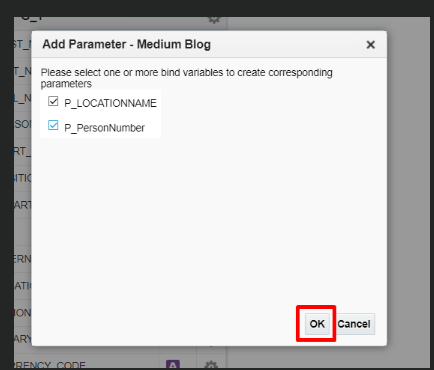

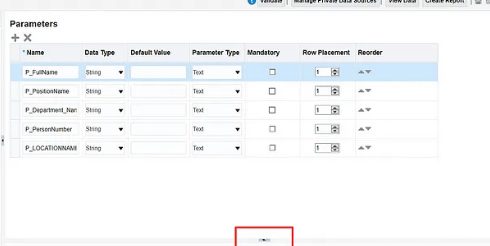
No Comments